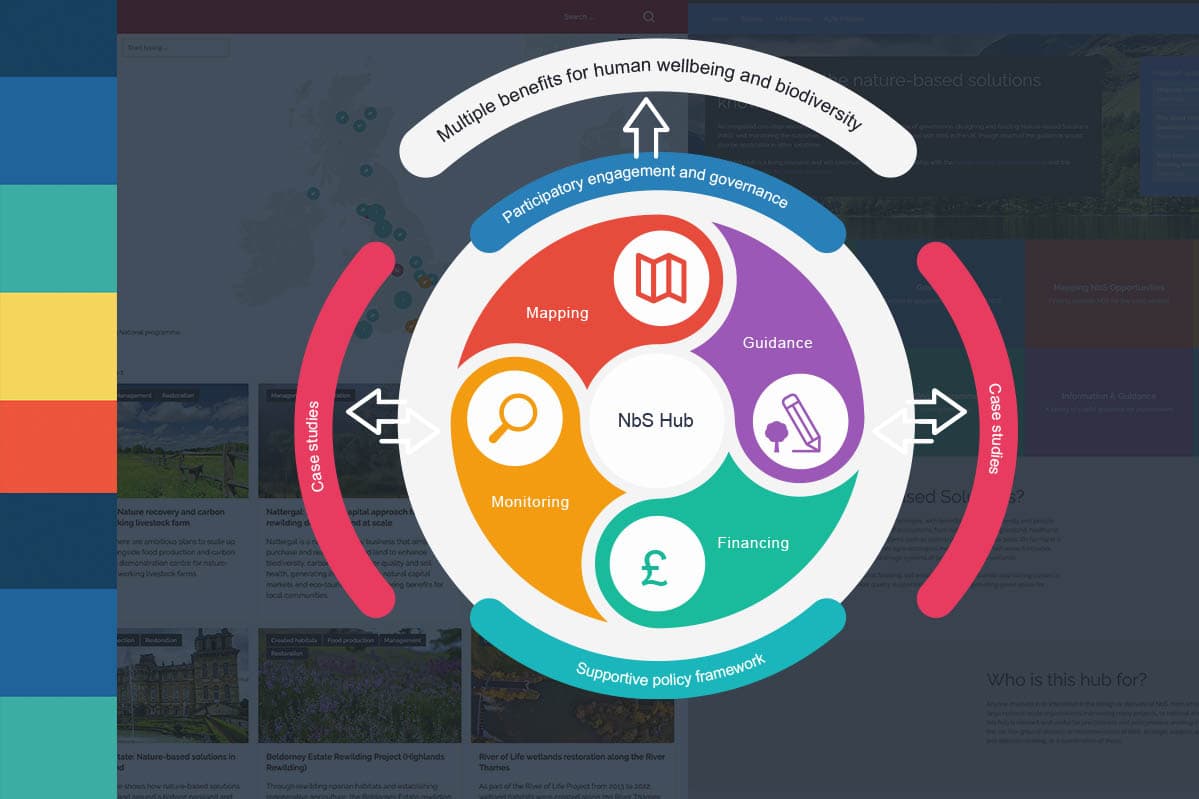Strengthening England’s Adaptation Programme with NbS to Bolster Climate Resilience

A policy brief, produced by the University of Oxford Agile Initiative and Nature-based Solutions Initiative, highlights the need to scale-up nature-based solutions in England’s National Climate Change Adaptation Programme. Drawing on our report “Nature-based Solutions in UK Climate Change Adaptation Policy”, the brief highlights that NbS can contribute to all eight of the highest priority climate risks from the UK’s third Climate Change Risk Assessment (CCRA3).
Nature-based solutions (NbS) involve working with nature to help address climate change challenges, simultaneously providing benefits for both people and biodiversity. Examples include saltmarshes protecting coastal areas; trees and green roofs mitigating floods and urban heat; and agro-ecological practices improving soil health and farming resilience. Despite their potential, Nature-based Solutions Initiative researchers found that NbS were underrepresented in the previous adaptation program; risking missed opportunities for enhancing climate resilience. To address this gap, this brief emphasises the importance of integrating a wider range of nature-based solutions, combined with implementation through robust policies, targeted funding, high-quality standards, and effective monitoring.
Nature-based solutions not only contribute to preserving biodiversity, but also have a role in enhancing carbon storage, improving air quality, promoting human health, generating employment opportunities, and reducing costs associated with climate impacts. This brief highlights the significance of community engagement and interdisciplinary research to maximize the local benefits of NbS for biodiversity and society.
The policy brief presents key recommendations to enhance the role of Nature-based Solutions (NbS) in the third National Adaptation Plan, ensuring their effective integration and mainstreaming across various sectors:
- Integrate a wider range of NbS: including examples such as sustainable drainage systems (SuDS), agroforestry, nature-based agriculture, natural regeneration of woodlands, rewilding, and the protection of marine habitats. Additionally, existing NbS mentioned in previous plans, such as natural flood management, require strengthened support and funding for successful implementation.
- Recognise NbS as essential climate adaptation and develop surrounding policies: Establish a cross-departmental working group to foster collaboration among relevant ministries and develop shared visions, targets, and action plans for NbS. NbS should be included in national nature recovery plans. Planning policy reforms must protect ecosystems, promote participatory approaches, and ensure that environmental protection legislation remains robust.
- Fund high-quality NbS for climate adaptation: Monitor and incentivise uptake of NbS options within the Environmental Land Management Scheme (ELMS) and adjust funding accordingly. Reform funding and procurement mechanisms to consider NbS alongside engineered options, accounting for their wider benefits. Develop blended finance options to leverage private investment, establish frameworks for stacking and bundling multiple benefits, and distribute costs and benefits effectively. Increase funding for research, demonstration, and long-term monitoring to strengthen the evidence base for NbS effectiveness and secure additional funding from public and private sources.
Read the full policy brief here.
For more information on the role of NbS for adaptation, check out the following esources:
Nature-based Solutions in UK Climate Change Adaptation Policy
Nature-based Solutions evidence platform
Mapping the effectiveness of nature-based solutions for climate change adaptation




